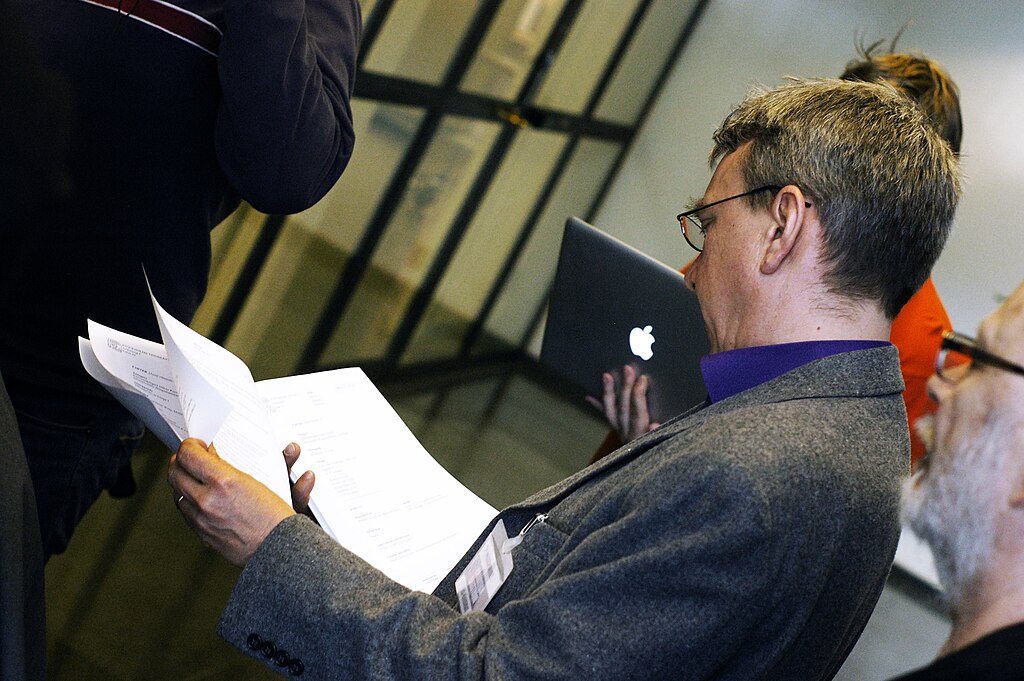
(Scypre.com) – A long-awaited verdict was reached in Indiana on Monday afternoon as a jury found Richard Allen guilty of the February 2017 double murder of teenagers Abigail “Abby” Williams, 13, and Liberty “Libby” German, 14. This high-profile case, known as the Delphi Murders, had gripped the community for over seven years as investigators pieced together details from that tragic day.
Abby and Libby had disappeared while hiking near the Monon High Bridge Trail in Delphi, Indiana, on February 13, 2017. The following day, their bodies were found hidden under sticks in a wooded area nearby, sparking a lengthy and challenging investigation that went on for years without a suspect. Allen, who was convicted of two counts of murder and two counts of felony murder, now faces a possible 130-year prison sentence, with his official sentencing scheduled for December 20.
Prosecutors built their case on several pieces of evidence, aiming to establish Allen’s presence at the scene and his role in the girls’ tragic deaths. A key component of their case was an unspent bullet discovered at the crime scene, which matched a gun found in Allen’s home when police executed a search warrant in 2022. Additionally, prosecutors cited multiple jailhouse confessions that Allen allegedly made to other inmates, further bolstering their case.
According to reports from Fox 59 in Indianapolis, Allen admitted he was the person seen in a video recorded by Libby on her cell phone on the day of her death. In this brief but chilling footage, Allen can be heard instructing the girls to go “down the hill,” words that became hauntingly famous during the investigation as authorities sought to identify the man Libby had captured on camera.
Allen’s defense team challenged the prosecution’s evidence, suggesting that Allen’s deteriorating mental health played a role in his confessions. They argued that his statements were unreliable, contending that his mental state had declined significantly after his arrest in 2022. Allen, a long-time CVS employee in Delphi, was well-known in the small town, and his arrest came as a shock to many residents.
The defense also called a former FBI forensic expert who testified about an unusual discovery related to Libby’s phone. This expert suggested that headphones may have been plugged into the device at 5:45 p.m. on February 13, hours after the girls were last seen. This detail, the defense argued, could challenge the prosecution’s timeline of events.
Carroll County Prosecutor Nick McLeland described the horrific scene in court, revealing details that shocked many. Both girls had their throats cut, and their bodies showed signs of significant blood loss. Abby’s and Libby’s clothing was found strewn across the scene, some items mixed between the two victims, with others in nearby Deer Creek. McLeland’s portrayal underscored the brutality of the crime.
Libby German’s courage in recording video footage of the man near her before her death became a key part of the case. The video was only 43 seconds long, but in that short time, jurors saw the man known as “Bridge Guy,” a figure who haunted Delphi and symbolized the search for justice in the years following the girls’ murders. His words, “Guys, down the hill,” were played in court, marking a powerful moment in the trial. Allen reportedly admitted to being the man seen in the footage, and to uttering the command “down the hill” to the girls, in one of his many alleged jailhouse confessions.
Years after the murders, a search warrant executed at Allen’s residence revealed further evidence. Police recovered a blue Carhartt jacket, a SIG Sauer .40-caliber handgun, and a .40-caliber bullet, which had been carefully stored in a wooden box between two closets in Allen’s bedroom. This firearm evidence became central to the case, as the unspent bullet found at the crime scene matched Allen’s gun, tying him directly to the location of the murders.
The defense had also suggested an alternate theory during pre-trial motions, contending that an Odinist cult might have committed the killings in a ritualistic manner. Although the judge ultimately decided against allowing the cult theory to be introduced during the trial, defense attorneys have suggested that they may pursue this line of argument in an appeal.
The Delphi community, which has mourned Abby and Libby for years, expressed a sense of relief following the verdict. While Allen’s conviction marks a significant milestone in the case, some questions remain as the defense may continue to appeal on various grounds, including mental health concerns and the potential cult theory.
As the sentencing date of December 20 approaches, the families of Abby and Libby, as well as the Delphi community, await the final steps of a journey that has been long, painful, and shrouded in mystery. For now, justice has been served for two young lives taken too soon.